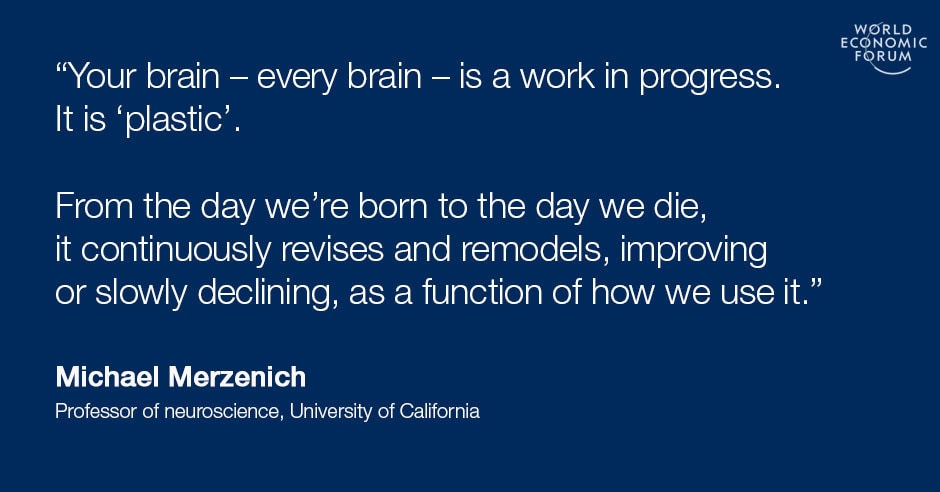Scientists say Google is changing our brains

The internet has changed every part of our lives. Now scientists say it’s even changing our brains
Image: REUTERS/Darren Staples
Stay up to date:
Neuroscience
Back in the pre-internet days, if someone asked you a tricky question, you had a couple of options. You could see if anyone you knew had the answer. You could pull out an encyclopedia. Or you could head down to the library to carry out research. Whichever one you opted for, it was almost certainly more complicated and time-consuming than what you’d do today: Google it.

Thanks to technology – and the internet in particular – we no longer need to depend on our sometimes unreliable memories for random facts and pieces of information. Think about it: when was the last time you bothered to memorize someone’s phone number? And what’s the point in learning the spelling of that long, complicated word when autocorrect will pick it up for you?
But with all the knowledge we could ever need at our fingertips, are we outsourcing our memory to the internet?
We are indeed, according to recent research. The latest study, from academics at the universities of California and Illinois, found that our increasing reliance on the internet is transforming the way we think and remember.
In the study, two groups of people were asked to answer a set of trivia questions. Those in the first group were told to use only their memories, while the others had to look up the answers online. Both groups were then asked a set of easier questions and given the option of using the internet. Those who had used the internet the first time round were much more likely to do so again.
Not only were they more likely to refer to the internet, they were quicker to do so, making very little attempt to figure out the answer themselves, even when the questions were relatively simple.
All of this is evidence of a trend the researchers refer to as “cognitive offloading”. It has become so easy to just look something up online, we’re giving up even trying to remember certain things.
“Whereas before we might have tried to recall something on our own, now we don’t bother. As more information becomes available via smartphones and other devices, we become progressively more reliant on it in our daily lives,” Benjamin Storm, the study’s lead author, said.
This latest study builds on existing research that suggests the internet isn’t just changing how we live and work – it’s actually altering our brains.
For anyone familiar with the work of neuroscientist Michael Merzenich, this won’t come as a surprise. After all, that’s what our brain is made to do. “It’s constructed for change. It’s all about change,” he explains in his popular TED talk.

The more important question, then, is whether or not this is a good thing. “It seems pretty clear that memory is changing,” Storm told us. “But is it changing for the better? At this point, we don’t know.”
Indeed, opinion seems divided as to whether this is a positive or negative development.
Some argue that by removing the need for rote learning – a system under which we were forced to memorize dates, names and facts – the internet has helped free up cognitive resources for other, more important things.
Nicholas Carr, author of What the internet is doing to our brains, isn’t so optimistic. By relying on the internet as an external hard drive for our memory, we are losing the ability to transfer the facts we hear and read on a daily basis from our working memory to our long-term one – something Carr describes as “essential to the creation of knowledge and wisdom”.
“Dozens of studies by psychologists, neurobiologists and educators point to the same conclusion: when we go online, we enter an environment that promotes cursory reading, hurried and distracted thinking, and superficial learning,” he writes.
While much more research into the consequences of this remains to be done, perhaps the change isn’t as significant as we might think. After all, as technology writer Clive Thompson points out, we’ve actually been outsourcing our memory for a long time.
“Humanity has always relied on coping devices to handle the details for us. We’ve long stored knowledge in books and on paper and post-it notes.”
It’s just that today, we turn to more sophisticated tools for that helping hand. “You can stop worrying about your iPhone moving your memory outside your head. It moved out a long time ago,” Thompson says.
And for Storm and the team of researchers behind this latest study, that might not be such a bad thing. “In the end I’m fairly optimistic. I think the internet (and technology more generally) is going to greatly expand the capabilities of the human mind.”
Accept our marketing cookies to access this content.
These cookies are currently disabled in your browser.
Don't miss any update on this topic
Create a free account and access your personalized content collection with our latest publications and analyses.
License and Republishing
World Economic Forum articles may be republished in accordance with the Creative Commons Attribution-NonCommercial-NoDerivatives 4.0 International Public License, and in accordance with our Terms of Use.
The views expressed in this article are those of the author alone and not the World Economic Forum.
Forum Stories newsletter
Bringing you weekly curated insights and analysis on the global issues that matter.